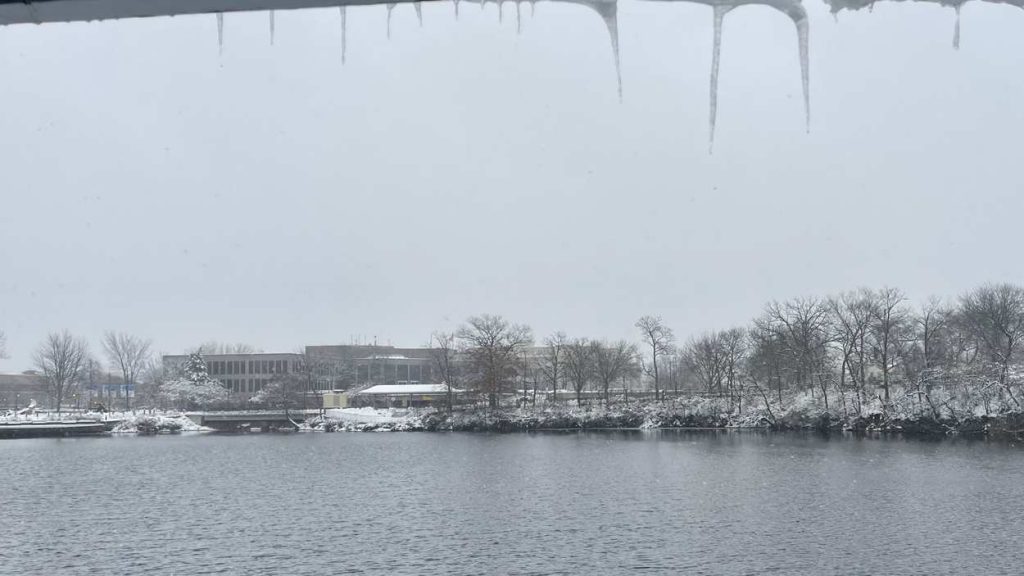Residents in parts of North Carolina, Virginia, and West Virginia are experiencing dangerously cold wind chills this morning. The National Weather Service (NWS) has issued warnings and advisories for these regions, with conditions expected to persist until noon today, and in some areas, through Thursday morning.
Severe Weather Conditions
Cold winds sweeping through the region are pushing temperatures to hazardous levels. Here’s a breakdown of the affected areas:
- North Carolina: Wind chill values as low as -15°F have been reported in northwest counties, including Surry, Wilkes, and Yadkin. The combination of strong winds and freezing temperatures makes the cold particularly intense.
- Virginia: Residents in Roanoke, Amherst, and Bedford are facing similar chilling conditions. These communities are under advisories cautioning against prolonged outdoor exposure.
- West Virginia: Greenbrier County is seeing the harshest conditions, with wind chill values dropping as low as -23°F. Extreme cold warnings highlight the serious risks of frostbite and hypothermia in such temperatures.
The advisory warns that exposure to these temperatures for more than 30 minutes could lead to frostbite, making it crucial to take protective measures.
Cold Weather Risks
The primary risks associated with extreme cold include frostbite and hypothermia. Frostbite occurs when skin and underlying tissues freeze due to exposure to frigid temperatures. The NWS warns that frostbite can set in within 30 minutes at current wind chill levels. Hypothermia, a life-threatening condition caused by prolonged cold exposure, is another major concern.
In addition to health risks, the weather poses challenges for transportation, with icy roads creating dangerous driving conditions. Delays and potential accidents are more likely in the affected areas, requiring extra caution for drivers.
Safety Tips for Residents
To stay safe during this dangerous cold spell, residents are advised to follow these precautions:
- Dress Warmly:
- Layer clothing to trap body heat.
- Cover extremities with hats, gloves, and insulated boots to prevent frostbite.
- Use scarves or face coverings to protect the skin from cold winds.
- Limit Outdoor Exposure:
- If possible, avoid going outside for extended periods.
- If you must go out, keep movements minimal and ensure you’re well-covered.
- Protect Pets:
- Bring pets indoors or provide adequate shelter and warmth.
- Ensure they have access to unfrozen water and food.
- Use Heaters Safely:
- Follow safety guidelines when using portable heaters to prevent fire hazards.
- Avoid overloading circuits and keep heaters away from flammable materials.
- Prepare for Icy Roads:
- Drive cautiously, especially on bridges and shaded areas where ice accumulates quickly.
- Keep an emergency kit with blankets, water, and a flashlight in your vehicle in case of breakdowns.
- Check on Vulnerable Neighbors:
- Ensure elderly or disabled neighbors have adequate heating and supplies.
- Help those who might be more susceptible to cold-related illnesses.
Extended Warnings
In addition to the immediate advisories, some areas could see cold weather warnings extended into Thursday morning. NWS meteorologists emphasize the importance of monitoring updates through local channels to stay informed about changing conditions.
Community Response
Local authorities are taking proactive measures to assist vulnerable populations. Shelters and warming centers have been set up in various towns and cities. Residents are encouraged to utilize these facilities if their homes lack proper heating.
Schools in some affected areas have delayed or canceled classes, ensuring children avoid exposure to the extreme cold during morning commutes. Utility companies are also on high alert to address any power outages caused by increased demand for heating.
Conclusion
With dangerously low wind chill values sweeping through North Carolina, Virginia, and West Virginia, staying warm and safe is critical. These temperatures can cause serious harm in a short time, making it essential to take proper precautions.
Residents should avoid unnecessary travel, stay indoors when possible, and ensure that friends, family, and pets are protected from the cold. Keep an eye on local weather updates for further advisories.
By following safety measures and assisting others in need, communities can navigate this cold spell safely and minimize the risks associated with such extreme weather.
Disclaimer – Our editorial team has thoroughly fact-checked this article to ensure its accuracy and eliminate any potential misinformation. We are dedicated to upholding the highest standards of integrity in our content.





More Stories
Residents Urged to Stay Indoors as Bitter Wind Chills Hit the Southeast
Residents Urged to Stay Indoors as Bitter Wind Chills Hit the Southeast
Residents Urged to Stay Indoors as Bitter Wind Chills Hit the Southeast